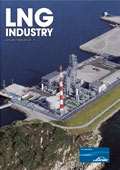Editorial comment
The start of a new year inevitably results in feelings of nostalgia and excitement as we reflect on years gone by and begin to look to the future. Lessons are learned, resolutions made, goals set…
Register for free »
Get started now for absolutely FREE, no credit card required.
I am writing this comment just a few days after ‘Blue Monday’ – the most depressing day of the year for us folks in the UK (according to a rather dubious scientific calculation put forward by a British PR agency and a former part-time tutor at the University of Cardiff). The theory goes that a number of factors combine to make the third Monday of January the most miserable day of the year, including weather conditions, debt level, the time since failing our new year’s resolutions, low motivational levels and, perhaps most significantly, feeling the need to take action.
Japan was recently hit with a blue day of its own, as news broke in late January that the country had posted a record high trade deficit of US$ 78 billion in 2012. This has been attributed to falling exports to Europe and China, as well as a spike in energy imports after the Fukushima crisis, with LNG imports soaring 11.2% to a record high of 87.3 million t. It is clear that the country’s newly elected Liberal Democratic Party (LDP) intends to take action. Rising LNG freight rates have led Prime Minister Shinzo Abe to reconsider the country’s nuclear policy. A government adviser recently stated that Japan could cut its power costs by 30% if it restarts at least half of its 50 nuclear reactors by 2014. This would amount to a saving of around US$ 20.3 billion, according to the Institute of Energy Economics, Japan.
The future of nuclear energy in Japan remains uncertain. Public opinion is still firmly anti-nuclear and any restart is dependent on approval from the Nuclear Regulation Authority. However, what is certain is that the LNG industry is facing up to the possibility of decreased demand from its biggest importer. US-based consulting firm, PIRA Energy Group, has suggested that Japanese LNG demand for power generation is set to decrease (if only slightly) in the second half of 2013 and Drewry Maritime Research recently labeled Japan’s decision to reconsider its nuclear policy as the biggest worry facing the industry this year.
However, there is good reason not to feel too blue just yet. Although the prospect of Japan abandoning nuclear power forever now seems unlikely, its appetite for LNG is set to remain high. The market is also readily expanding throughout the rest of the Asia-Pacific region. This month’s regional report from the Economist Intelligence Unit (starting on p. 12) explains how economic growth, state policies and limited natural resources will dictate a growing demand for natural gas for the rest of this decade and beyond, with Australian and eventually North American LNG exporters set to gain.
And there is another important reason to remain optimistic. With seven Prime Ministers in the last five years, it is reasonable to suggest that major policy changes are never too far away in Japan. If there is one thing we have all learnt about the LNG industry over the last few years, it’s to expect the unexpected!


